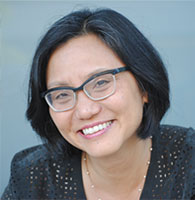Here’s something I often hear from diverse creators: “I’m writing books for kids because when I was little, I never saw myself in books. I want to make sure every child has the chance to see themselves in a book.”
Sound familiar? The inspiration is a noble one, and I couldn’t be more excited about the work being produced these days by writers from marginalized communities. It’s a challenging, tumultous, and EXCITING time in the world of children’s books.
When I hear something like the above, I can certainly relate. There were so few books featuring Asian or Asian-American characters when I was growing up in the 1960s and early 1970s.
BUT. And this is important.
There WERE people doing that work. There were creators battling conditions a thousand times less woke than today, overcoming the obstacles, publishing one book at a time into what must have seemed like a void. No marketing, No WNDB, no social media communities.
If you were born after about 1970, and you tell audiences that you are writing books because you never saw yourself in a book, I believe you. But the books were there, AND THEIR CREATORS DESERVE TO BE ACKNOWLEDGED.
It was not the fault of the creators that their books weren’t/aren’t better known. Their books got close to ZERO support at every level–from the publishing process right on through to the educational system and the general zeitgeist of the time.
It follows, therefore, that it was also not the fault of readers in marginalized communities that they were unaware of these books. (With thanks to Namrata Tripathi, Jamar Perry, David Bowles, KT Horning, and others, for helping me clarify this point.) How could they find books that were absent from bookstores, libraries, classrooms?
I think today’s creators need to be careful not to inadvertently perpetuate the erasure of that seminal work. Saying something like, “I never saw myself in a book,” could easily be misapprehended as meaning, “There were no books about kids like me out there.”
So a humble suggestion: When you say, “I never saw myself in a book,” perhaps you might add a line or two acknowledging the shoulders we all stand on. How about something like, “My education did not include being introduced to the wonderful books by authors like Eloise Greenfield or Donald Crews.”
Dr. Debbie Reese offers this language: “Societal marginalization of writers that were creating mirrors for me meant that I didn’t see those mirrors until I was an adult.”
Eloise Greenfield. Donald Crews. Lawrence Yep. John Donovan. Virginia Driving Hawk Sneve. Pura Belpré. Alma Flor Ada. Those are a few creators that came to mind immediately. There are more. They are not household names, and they should be.
Honor our forebears. And then make them proud.

